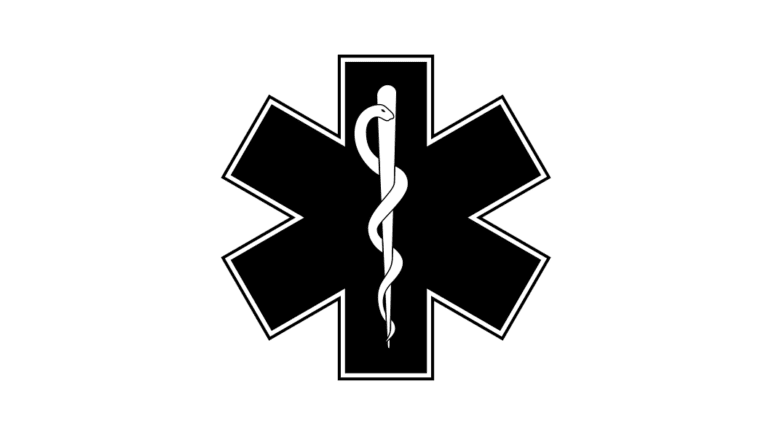This article by Rebecca Grapevine first appeared in Healthbeat, republished with permission.
Rebecca Grapevine, Healthbeat
Public health, explained: Sign up to receive Healthbeat’s free Atlanta newsletter here.
Dr. Preeti Jaggi remembers clearly the moment she became concerned about the environment. Robin Williams was there – on the television.
Jaggi was a teenager in Ohio in 1990 when Williams and other celebrities landed in her living room to talk about pollution and other environmental problems as part of “The Earth Day Special.”
“I remember they talked about climate and how we depend on a stable Earth to thrive. … I remember being concerned about it,” she said.
Jaggi, 52, went on to become a pediatrician specializing in infectious diseases. She works at Children’s Healthcare of Atlanta and as a professor at Emory University, blending her workplace focus on protecting patients with a role as an environmental advocate.
She chairs the advocacy group Georgia Clinicians for Climate Action, where she argues for more renewable energy before the state’s Public Service Commission, collaborates to electrify Georgia’s school buses so kids have cleaner air, and finds ways for the health care industry to be more environmentally sustainable.
Her “everything, everywhere, all at once” presence is driven by her belief that pediatricians have a duty to protect the Earth’s future for their young patients.
“It’s becoming more and more obvious that the environment is affecting health … We just had this huge deluge flood in Texas, and all these kids in a camp were either displaced or died from that,” said Jaggi, who lives in Decatur.
Closer to home, she often talks about the death of 1-year-old twins and their mother in Thomson, Georgia, last year after a tree fell on their home during Hurricane Helene.
Rising temperatures also drive more hot days, which lead to more emergency room visits, Jaggi said.
Excess heat days increase the risk of heatstroke, and longer warm periods mean ticks, mosquitoes, and other vectors of disease are moving to new areas, bringing infections like Lyme disease, malaria, and dengue fever.
Air pollution also has a range of impacts, Jaggi said, including driving up rates of premature births, cancer, autism, and especially asthma.
Jaggi said that during the 1996 Atlanta Olympics, when there was significantly less driving, air pollutants fell, and so did the number of children going to the hospital for asthma – by 40%.
“We need to have strong air pollution standards because we know that it makes us sick,” Jaggi said.
“Our new reality” can make it tough for kids to play outdoors and connect with nature, Jaggi said, something that’s always been a key source of pleasure for her.
“There are going to be days where kids cannot go outside as much as they would otherwise do, which is really sad for them, right? We want them to be outside and be playing in that unstructured time,” she said.
While her medical training did not include much of a focus on climate change, she has enrolled in programs like the Climate Health Organizing fellowship through the Cambridge Health Alliance.
Children are tapped into the impact of climate change, and they’re worried about it, Jaggi said.
“I’ve heard a kid say, ‘I feel that adults take no initiatives into protecting the climate, and they put all the burden on future generations. .. And I don’t know if we can do that without you’,” Jaggi said.
“In Georgia, about 23% of 16- to 25-year-olds are extremely worried about climate, and 75% are worried,” Jaggi said, referring to a study published in The Lancet last year. She can relate to the concerns, since she felt them many years ago as a high school student.
Jaggi also spends a lot of time thinking about vaccines in the face of increasing hesitancy among parents. She sees a parallel with her climate work: “We want to prevent a problem. … This is why, as a mom, you would tell your child, ‘Don’t stay close to that hot stove. Don’t put your hand on that hot stove.’ …. We do things to prevent a problem.”
Jaggi said she has had patients who suffered from vaccine-preventable illnesses. For example, one child was not vaccinated for chickenpox, and suffered a bacterial infection.
“It really ate away at their muscle, and they had to be in hospital for three weeks with six or seven surgeries. The parents said to me, ‘If we would have known, we would have gotten this vaccination’,” Jaggi said. “I just listened to them, and I empathized with their suffering also, because they, I believe, had some regret.
“Giving good information to people about the safety of vaccinations is our responsibility,” Jaggi said.
Vaccination and protecting the environment are driven by a community ethos: “Your community protects you, and you protect your community. It’s similar – we want to protect our environment so that our kids can thrive.”
“The best thing that I can say to people to convince them that I love my children more than anything in this world, and I vaccinated them because I want them to be healthy,” said Jaggi, the mother of two college students.
Even as she reels off a host of climate concerns, Jaggi has found that her advocacy brings her “joy,” inspired by the marine biologist and climate activist Ayana Elizabeth Johnson.
“There are so many things that I view with confusion and bewilderment, but I can still do something, and … even small actions are important,” Jaggi said. “I find a lot of joy in at least just remembering that I can do something.”
Rebecca Grapevine is a reporter covering public health in Atlanta for Healthbeat. Contact Rebecca at rgrapevine@healthbeat.org.
Healthbeat is a nonprofit newsroom covering public health published by Civic News Company and KFF Health News. Sign up for their newsletters here.
